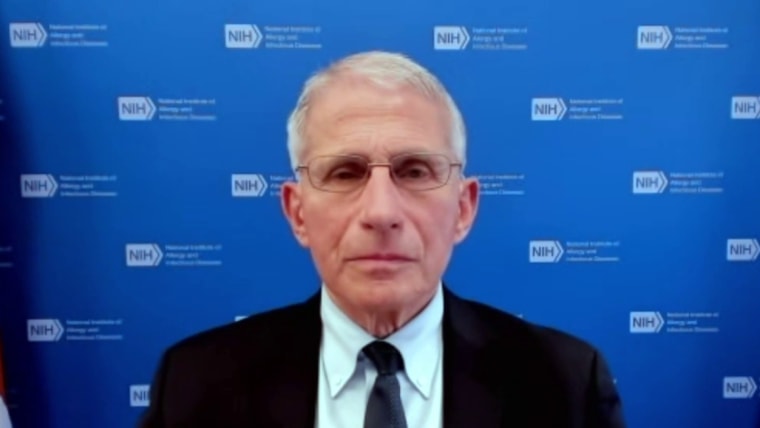A major threat to the next pandemic: Vaccine hesitancy
In April, more than 1,000 vaccine experts gathered in Washington, D.C. for the first time since the pandemic began. Over four days, scientists, doctors and drugmakers pored over cutting-edge research and tackled some of the most pressing questions in the world of vaccines.
Talk of Covid-19 vaccines was, of course, unavoidable. But high on the agenda at the World Vaccine Congress was a vaccine for another mysterious illness that could strike at any moment: Disease X.
Full coverage of the Covid-19 pandemic
Disease X is not any particular virus, bacteria or other germ, but a term used as a stand-in for whatever pathogen will sweep the globe in the next pandemic. And there will indeed be a next pandemic, experts say.
For the vaccine experts, one thing is clear: No matter the form Disease X takes, they’ll be called on to get to work and develop the vaccine.
Such a task could feel insurmountable, given the vast unknowns. Should they focus on particular viruses now to get a head start? Should they look at pathogens that so far are found only in animals, but could someday spill over into humans and cause widespread disease, like Covid did?
Big and important questions, yes, but simple enough for this group of vaccine researchers and developers. They know the science. They understand how viruses evolve and spread. They know how to make safe and effective vaccines against them.
But — as has become evident more than a year and a half into the U.S. vaccination campaign — one essential piece of information is missing: How to convince hesitant people to be vaccinated.
“There’s something about human behavior that we’re still not really understanding,” Dr. Nicole Lurie, U.S. director of the Coalition for Epidemic Preparedness Innovations, told the World Vaccine Congress.
Since the first shots went into arms in December 2020, just over 66 percent of the U.S. population is now fully vaccinated, according to the Centers for Disease Control and Prevention.
“There’s all this emphasis on science and labs. It’s one thing to do that, but it’s a whole other thing to get what you develop in the lab into people’s arms,” said Richard Carpiano, a public health scientist who studies issues surrounding vaccine uptake at the University of California, Riverside.
Scientists at the World Vaccine Congress acknowledged that, for all of their education and training, one issue has remained frustratingly hard to overcome: the growing anti-vaccine movement.
U.S. Surgeon General Vivek Murthy told NBC News that there is no doubt that vaccine misinformation is harming Americans, and could be detrimental in years to come.
“It’s certainly one of the issues we must address to prepare for the next pandemic, whenever that may come,” he said. “This is absolutely critical from an emergency preparedness standpoint.”
If people are refusing vaccines in the face of an ongoing pandemic, widespread deaths will occur in future pandemics, warned Dr. Julie Morita, executive vice president of the Robert Wood Johnson Foundation.
“If we continue to have poor acceptance of vaccines, we will see millions of lives lost in the case of another pandemic as big as this one,” she said.
This will continue to haunt us.
Dr. peter hotez, texas children’s hospital
Dr. Peter Hotez, co-director of the Center for Vaccine Development at Texas Children’s Hospital and dean of the National School of Tropical Medicine at the Baylor College of Medicine in Houston, addressed conference attendees, saying, “If you really want to save lives, it’s not only about making vaccines.”
“We continue to underestimate what I call anti-vaccine, anti-science aggression,” he said, adding that until it’s met head-on, “this will continue to haunt us.”
Hesitancy history
The World Health Organization named vaccine hesitancy one of the top 10 threats to global health in January 2019 — nearly a year before whispers of a mysterious illness in Wuhan, China. The reasons why people may be reluctant or refuse vaccines are complex, the WHO wrote, but include complacency and a lack of confidence in the shots or their health officials. The agency estimated that 1.5 million lives could be saved globally if vaccines were more widely accepted.
What’s happened in the U.S. during the Covid pandemic is a prime example of the deadly toll that can occur that can accompany vaccine hesitancy. The Kaiser Family Foundation estimates that nearly a quarter million Covid deaths from June 2021 through March 2022 were among the unvaccinated. This represents 60 percent of Covid deaths reported in that time period.
But vaccine hesitancy is not new. People have been questioning vaccines since they were first introduced in the 18th century to combat smallpox, which, at the time, was killing up to half a million people a year in Europe alone.
In 1910, Canadian physician Dr. William Osler wrote that he remained resolute in the benefits of smallpox vaccinations, despite anti-vaccine sentiments of the time.
“I do not see how anyone who…
Read More:A major threat to the next pandemic: Vaccine hesitancy

